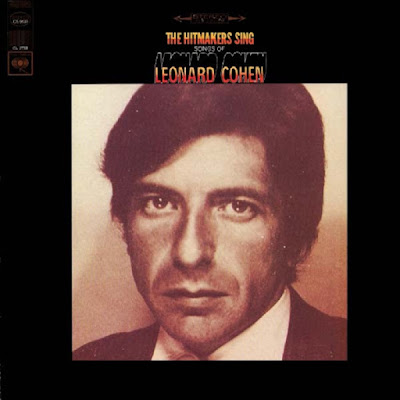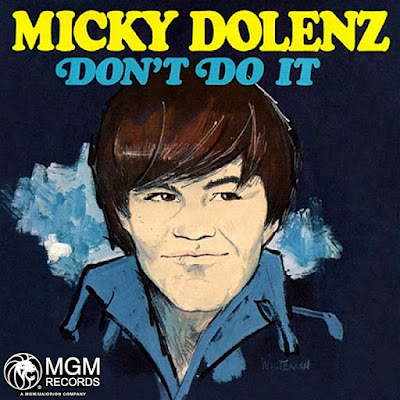The Rubettes are an UK pop/glam rock band put together in 1974 after the release of the single 'Sugar Baby Love', which was recorded by a bunch of session musicians in 1973. It was written by the song-writing team of Wayne Bickerton, the then head of A&R at Polydor Records, and his co-songwriter, Tony Waddington, but their pastiche of doo-wop and 1950's American pop-influenced songs had been rejected by a number of existing acts, and so they recorded it themselves using a session band. 'Sugar Baby Love' and three other songs were recorded for Polydor in October 1973 at Lansdowne Studios in Holland Park, London, and they all featured the distinctive falsetto lead vocals of Paul Da Vinci. However, when 'Sugar Baby Love' was a surprise hit, a band had to be hastily put together to perform the song on Top Of The Pops, and when Da Vinci did not want to join the group, preferring to pursue his solo career, his place was taken by Alan Williams, who re-recorded the vocals for the Top Of The Pops appearance, meaning that most people's first experience of the song would have been his version of it. As most of the band members were in other rock bands at the time, and because they didn't want to cut their hair in case they couldn't successfully follow up the single, they tied it up under white cloth caps, which soon became their trademark. Perfectly timed at the tail end of the glam-rock movement, 'Sugar Baby Love' was the band's only UK No. 1 and sole US Top 40 entry, and it went on to sell three million copies globally.
The initial line-up of The Rubettes was Alan Williams (whose vocals never appeared on the original 1973 recording of 'Sugar Baby Love', but who would sing lead on all remaining songs), John Richardson, Pete Arnesen, Tony Thorpe, Mick Clarke and Bill Hurd, and they went on to have a number of other top ten hits across Europe during the mid-1970s, such as 'Tonight', 'Juke Box Jive' and 'I Can Do It', mostly written by the Bickerton–Waddington song-writing team. The band's success enabled Bickerton and Waddington to set up State Records, so that ten months after the release of 'Sugar Baby Love', the fourth Rubettes single 'I Can Do It' was on State. In 1976 the band abandoned glam nostalgia to enter more serious territory, and their 1976 single 'Under One Roof', which was sung by John Richardson, was a portrayal of a gay man disowned and later murdered by his father, and along with Rod Stewart's 'The Killing Of Georgie' was one of the few songs that tackled the topic of homophobia. Their most successful self-composed hit was the country rock styled ballad 'Baby I Know' in 1977, sung by Tony Thorpe, which reached number 10 in the UK and Germany.
During this period the band continued to cater for the much bigger European market by continuing to release the more commercial Williams-fronted pop singles, such as 'Julia', 'Allez Oop', and 'Ooh La La'. The band became a quintet in early 1975 with the departure of Arnesen, and later became a quartet in mid-1976 when Hurd departed, and they have remained as a four-piece ever since. Thorpe later left the group and was replaced by Bob Benham, but he departed shortly thereafter, and dwindling success led to the band dissolving in 1980. They reformed in 1982, with a line-up consisting of Williams, Clark, Hurd, and drummer Alex Bines, in an attempt to exploit the German market for 1970's nostalgia, and this line-up remained relatively stable until 1999. As so often happened with bands whose hits were penned by professional songwriters, they were allowed to record their own songs on the b-sides of their singles, mostly Richardson/Williams compositions, and these tended to be left off their albums, so here they all are in one place, alongside a couple of stand-alone singles, so that we can get an idea of what the band really wanted to sound like.
Track listing
01 You Could Have Told Me (b-side of 'Sugar Baby Love' 1974)
02 Silent Movie Queen (b-side of 'Tonight' 1974)
03 When You're Falling In Love (b-side of 'Juke Box Jive' 1974)
04 If You've Got The Time (b-side of 'I Can Do It' 1975)
05 With You (b-side of 'Foe-Dee-O-Dee' 1975)
06 Cherie Amour (single 1977)
07 Come On Over (b-side of 'Cherie Amour')
08 Little 69 (single 1978)
09 Lola (single 1979)
10 Stay With Me (single 1979)
11 Au Revoir (b-side of 'Stay With Me')
12 Kid Runaway (single 1979)
13 Southbound Train (b-side of 'Kid Runaway')
14 I Can't Give You Up (single 1981)
15 We're Doing It Wrong (b-side of 'I Can't Give You Up')
16 Stuck On You (single 1981)
17 Don't Come Crying (single 1982)
18 Breakdown (b-side of 'Don't Come Crying')
19 Keep On Dancing (single 1985)












